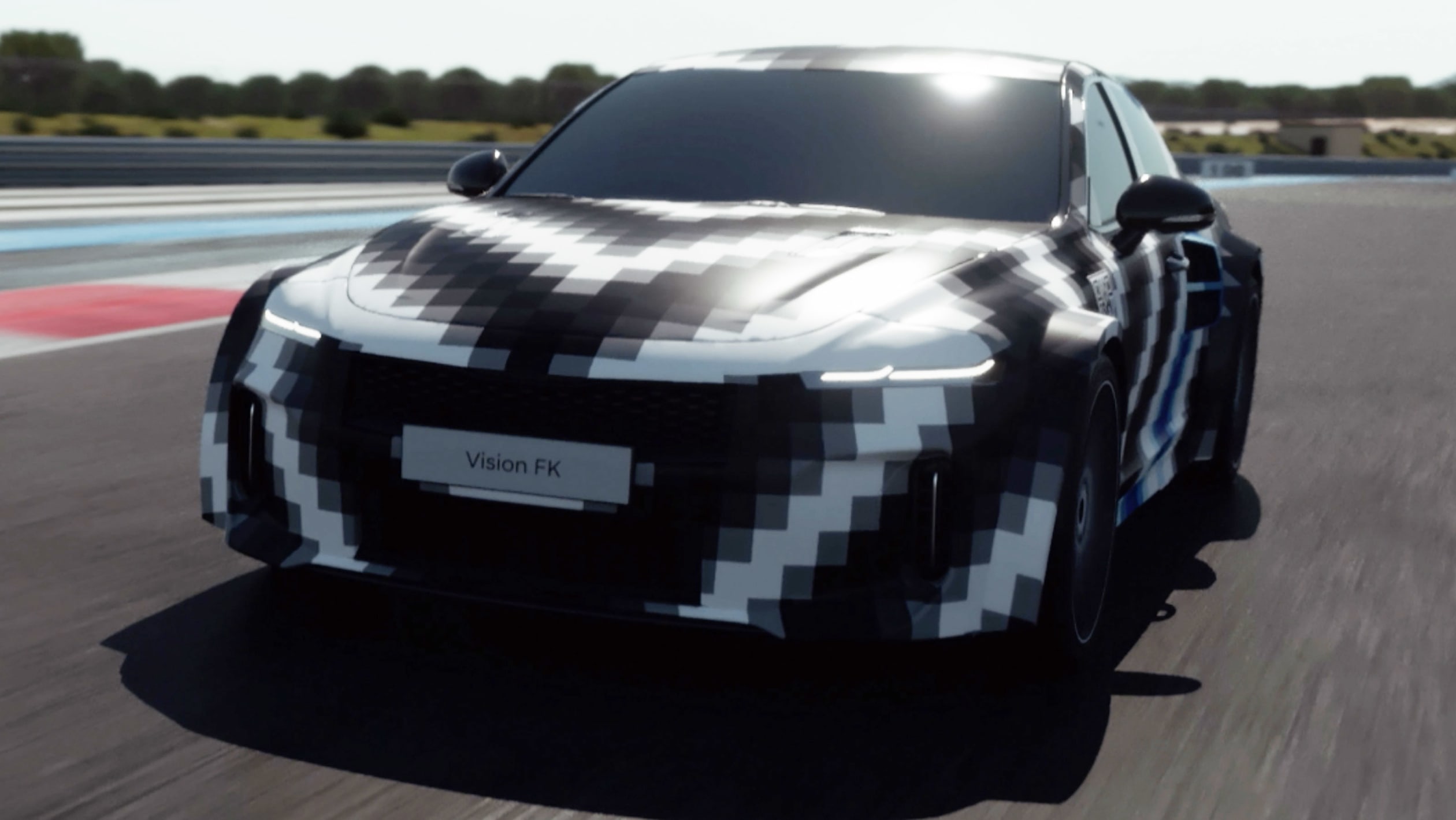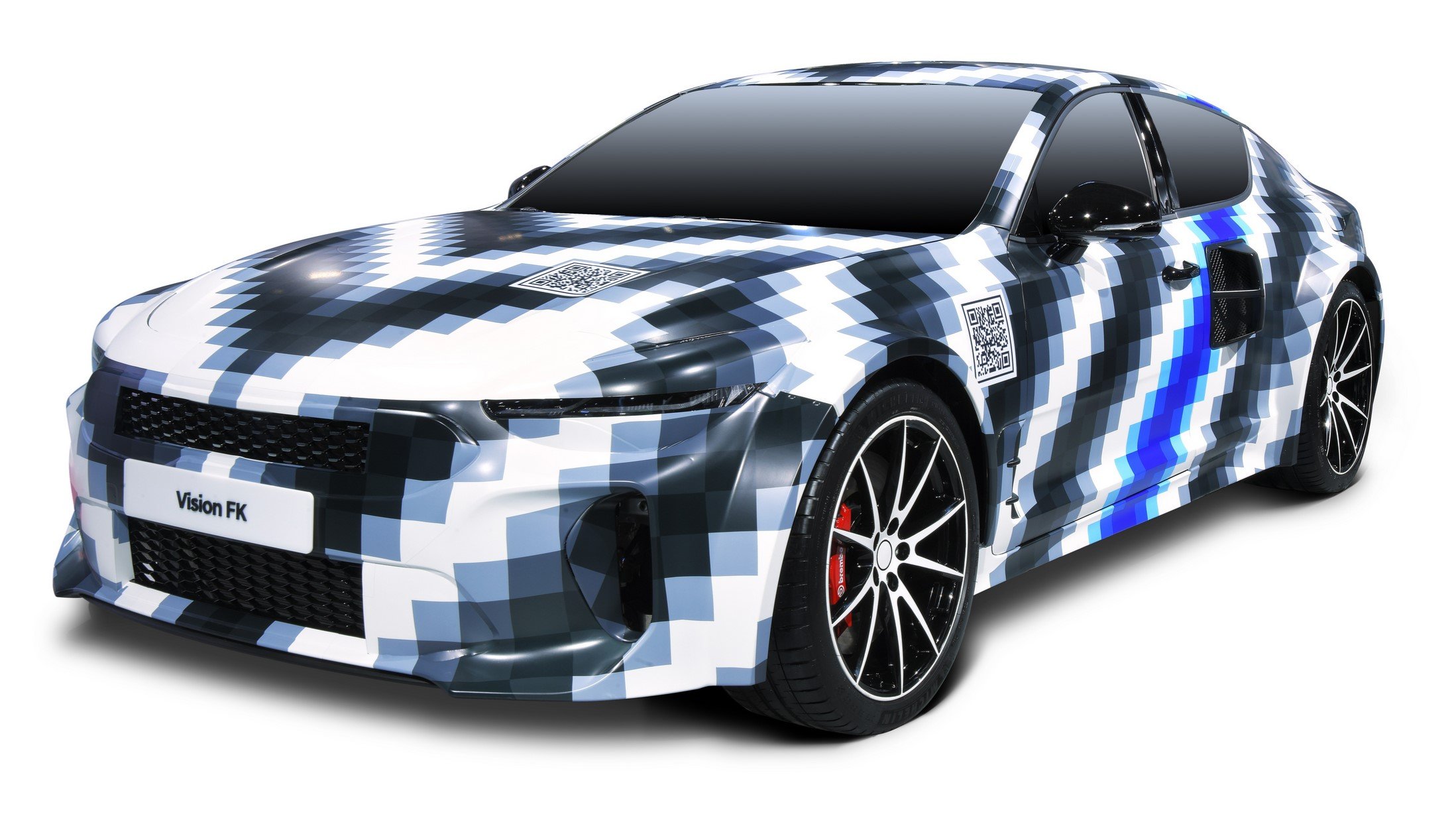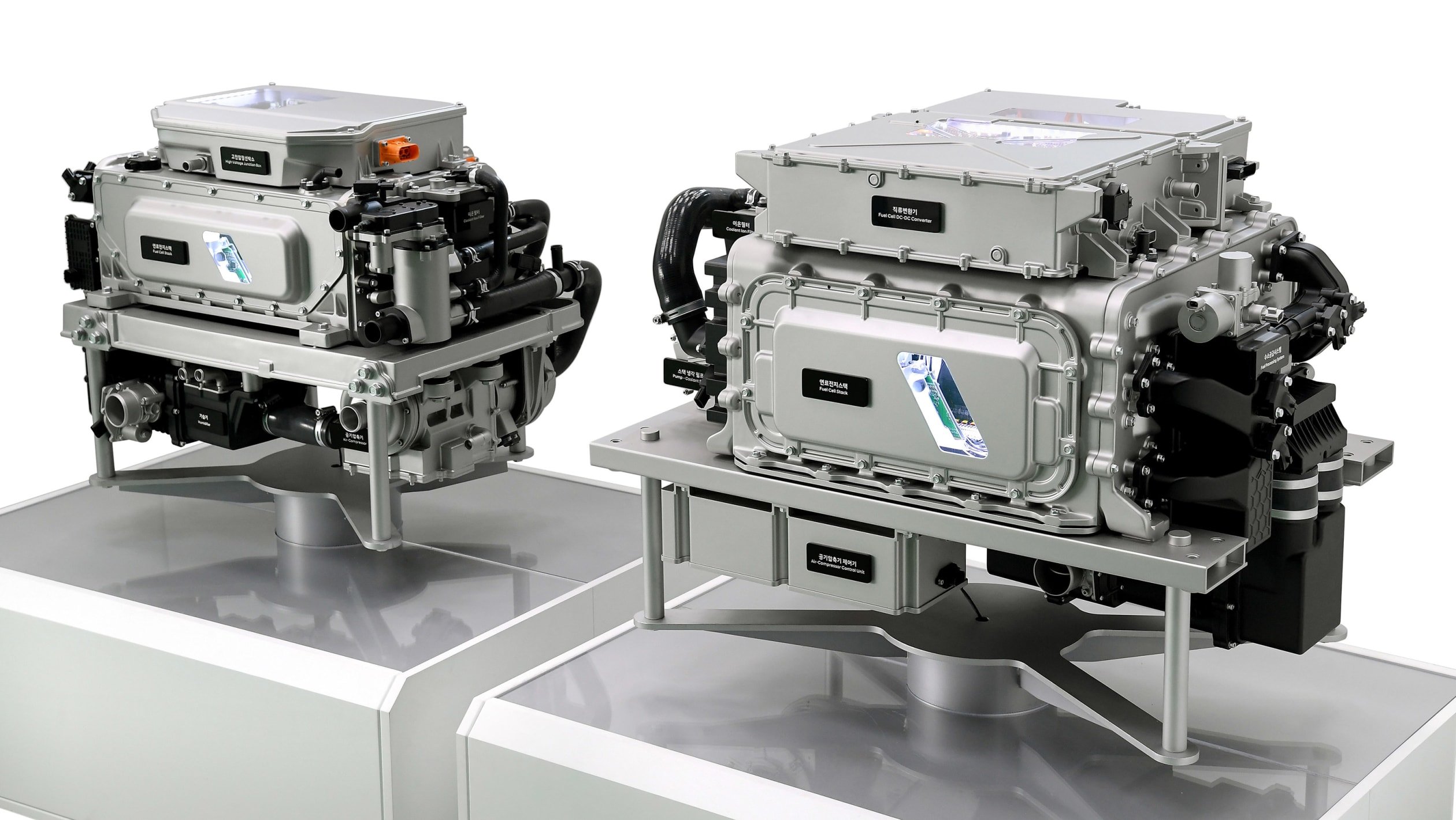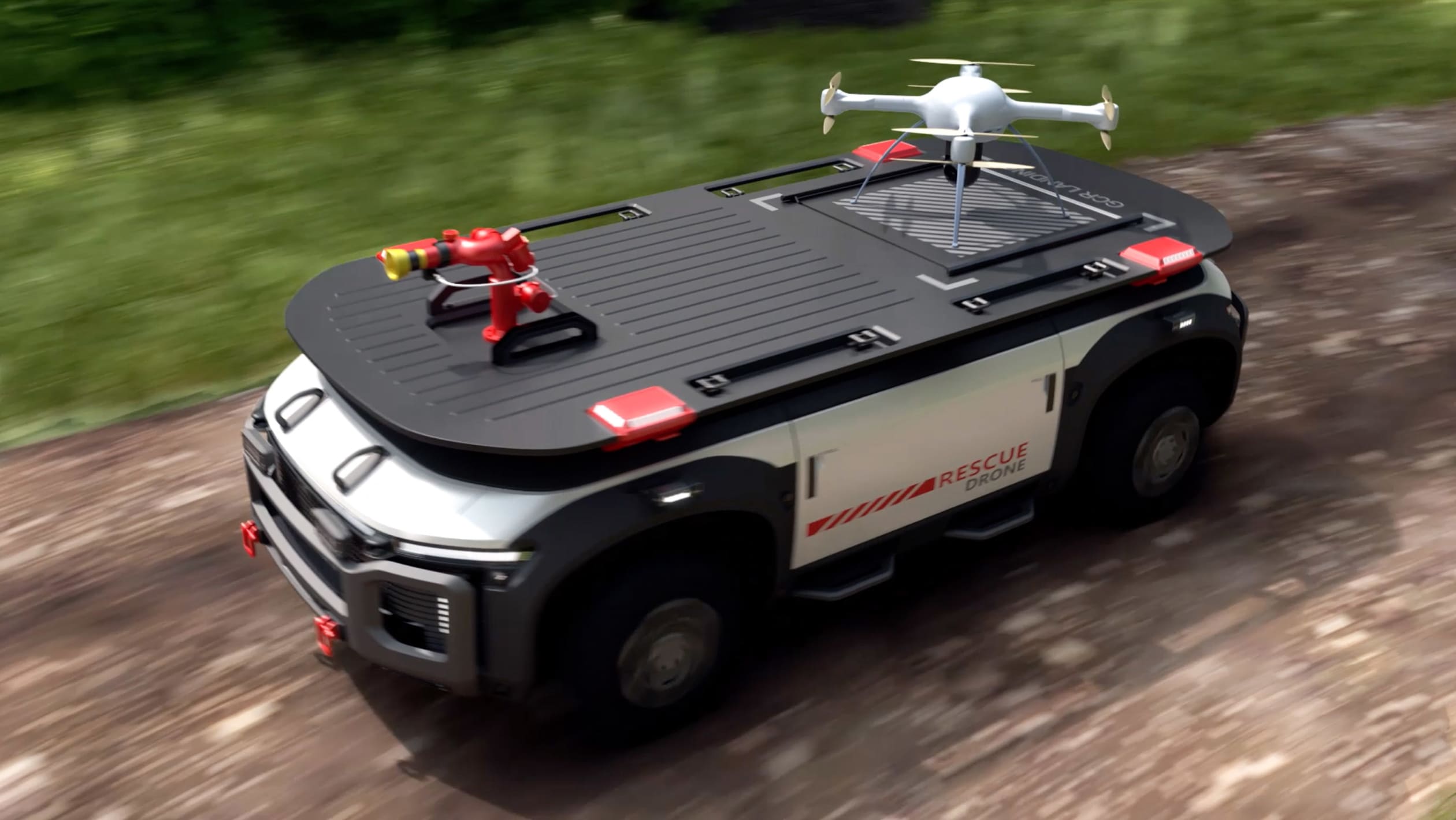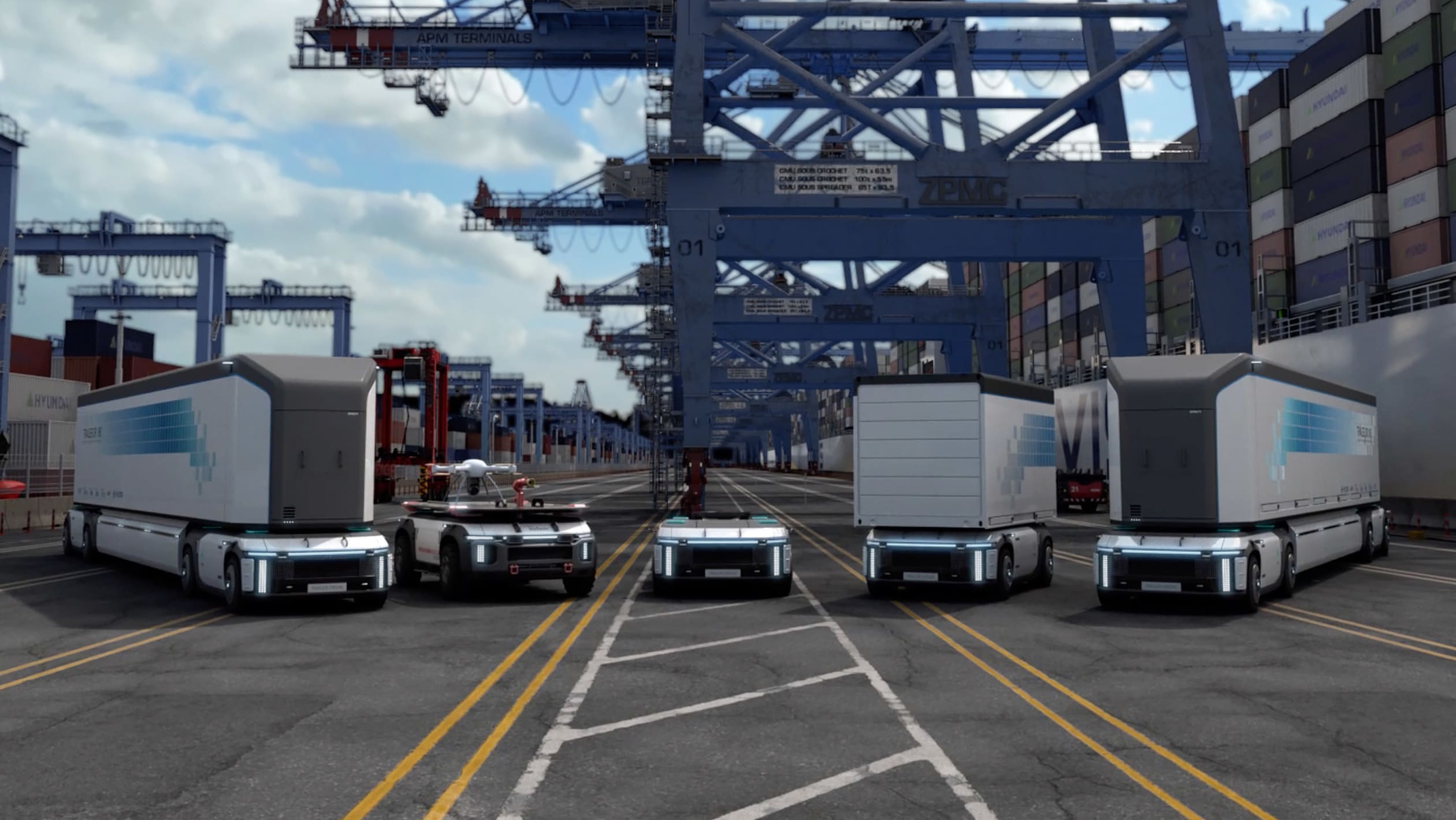Hyundai details next-generation hydrogen powertrain for use in passenger and commercial vehicles; FCEVs to cost the same as BEVs from 2030.
Hyundai will seek to “popularise hydrogen” by 2040 with a raft of initiatives aimed at positing the fuel as an alternative to all-out battery electrification, and not just in the private vehicle sector.
Following on from yesterday’s wide-reaching commitment to making its vehicle fleet all-electric in Europe in 2035, and globally by 2040, Hyundai has voiced a commitment to mass producing hydrogen fuel cell electric cars and commercial vehicles (FCEVs).
Further to that, the company estimates FCEVs will be similarly priced to battery-EV equivalents by 2030.
Leading the hydrogen charge in the passenger sector will be a new hybrid sports car referred to at concept stage as the Vision FK. Previewed as part of Hyundai’s hydrogen strategy presentation, it is claimed to pack more than 500kW, accelerate from 0-100km/h in less than four seconds and achieve a range of more than 600km.
Unusually, the Vision FK pairs its hydrogen fuel-cell stack with a battery-electric powertrain driving the rear wheels, which would make it the first car to use both systems, assuming it makes production unchanged.
Hyundai has previously suggested future models from the N performance division would adopt hydrogen powertrain solutions, and the Vision FK concept is the first physical sign that they will indeed, “use a combination of both” battery and hydrogen power sources, as suggested by N boss Albert Biermann earlier this year.
No date for the car’s production has yet been given, nor has Hyundai given an indication of such a system’s potential for a roll-out to other models, but given recent sightings of a prototype for the upcoming Ioniq 5 N, it’s clear both battery and hydrogen power will be crucial to the brand’s electrification plans.
Indeed, a brand spokesperson at the Munich motor show yesterday said: “We’re committed to both battery and fuel cell technologies. EVs like Ioniq 5 can take long journeys with short recharge times,” so can FCEVs, which means “they don’t need big heavy batteries.”
Hyundai had earlier confirmed plans to heavily update the existing Nexo crossover – one of just two mainstream passenger EVs on the market – in 2023, before launching a pair of new standalone FCEVs by 2025, but now Hyundai has detailed the upgraded hydrogen powertrain that will underpin this shift in focus to hydrogen.
The third-generation fuel cell stack – following on from the first in 2013’s low-volume ix35 SUV and the second iteration in today’s Nexo – will be available in two power outputs: 100kW and 200kW, the former of which is claimed to be 30 per cent smaller than the system currently in use. It will therefore, Hyundai said, be readily usable in a wide variety of vehicle types, while the 200kW version is geared towards exclusively commercial applications.
More significantly, the third-generation stack promises a significantly longer usable life compared to today’s system; Hyundai estimates the Nexo’s current powertrain is capable of 5000 hours or 160,000km of usage, but the new system is projected to boost those figures by between 50 per cent and 100 per cent, with the ‘high durability’ versions capable of some 500,000km of use – nearly double the warranty mileage of a combustion-powered Hyundai model.
Felix Page




